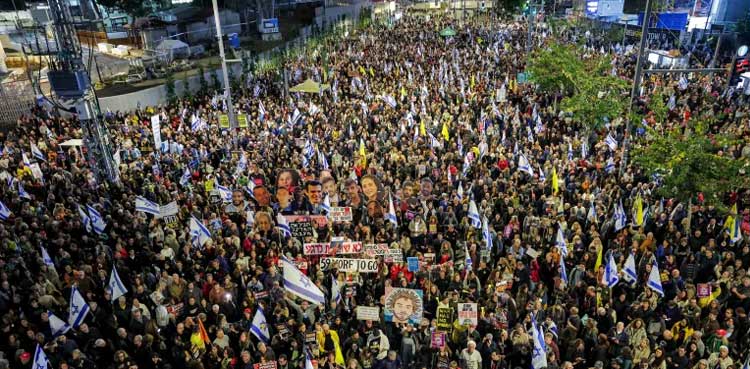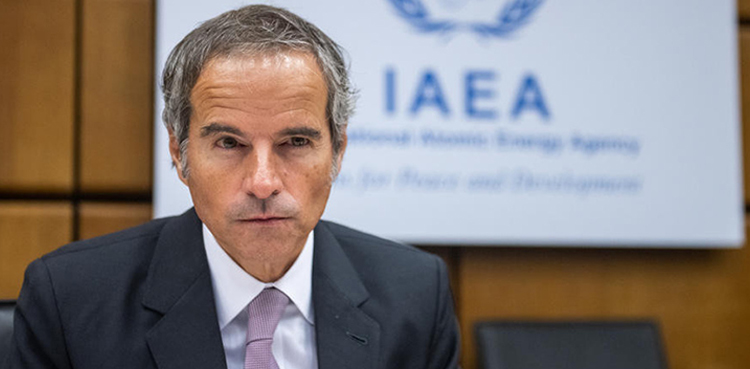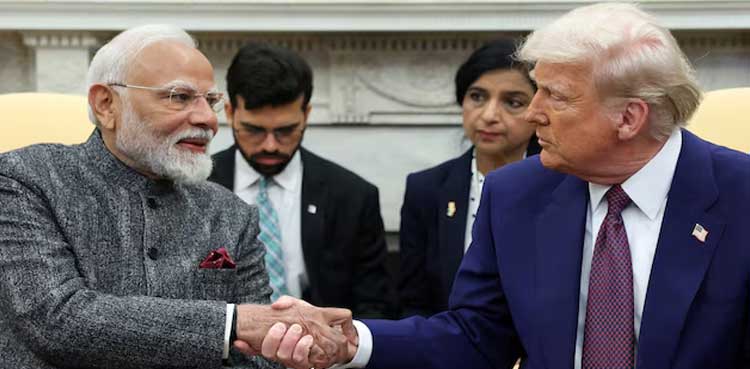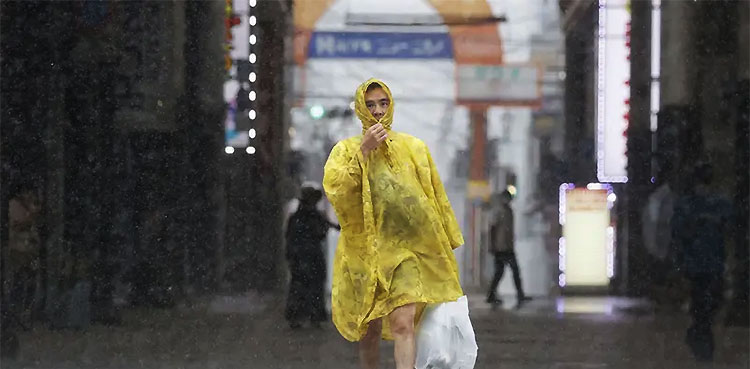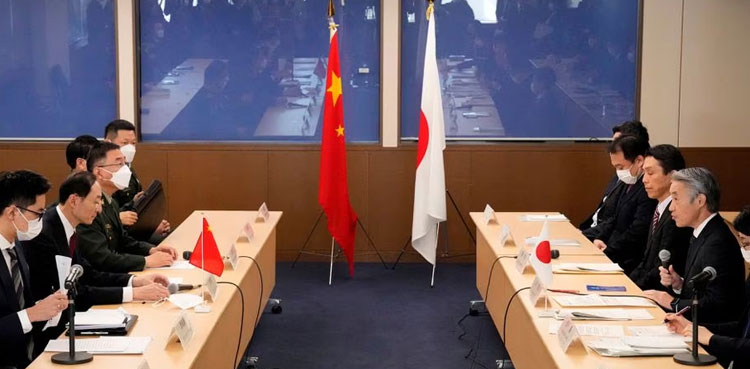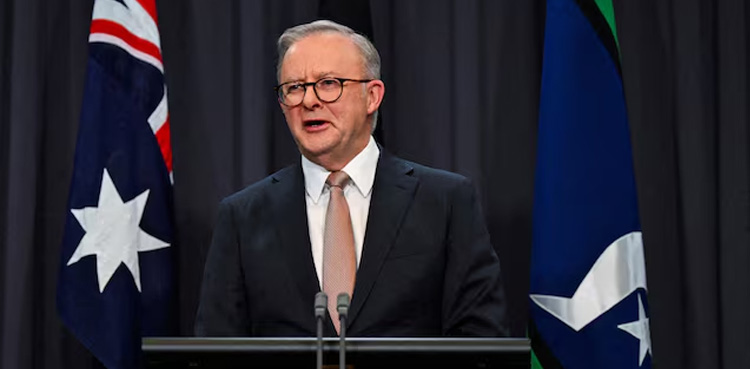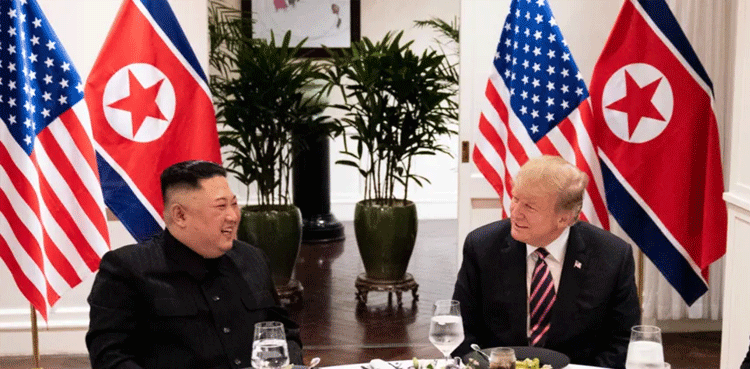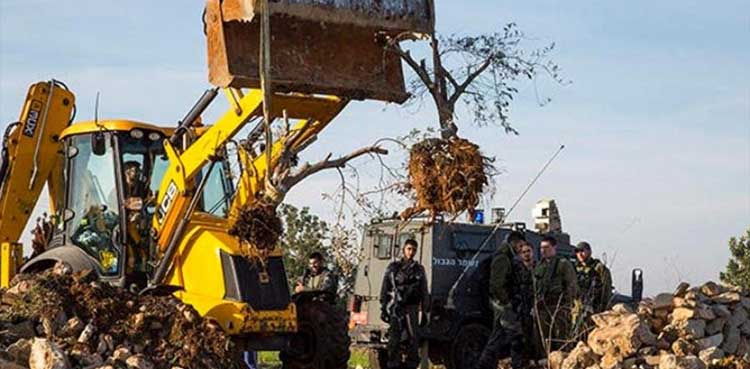Tel Aviv: Thousands of demonstrators massed in Tel Aviv on Tuesday, seeking to push the government to end the war in Gaza and strike a deal to return hostages, as the security cabinet convened.
The first protests began at daybreak as demonstrators blocked roads in the commercial hub, where they waved Israeli flags and held up pictures of the hostages, AFP journalists reported.
Israeli media said others rallied near the US embassy branch in the city, as well as outside the houses of various ministers.
Hours later as the sun set over Tel Aviv, thousands more gathered in “Hostage Square”, which has served as a focal point for the protest movement for months.
People in the crowd sounded air horns, blew whistles and banged on drums as they chanted: “The government is failing us, we won’t give up until every hostage is home.”
“I’m here first and foremost to protest, and to call for the government to make a deal and bring all the hostages home and to end the war,” said demonstrator Yoav Vider, 29.
Following the cabinet meeting, Prime Minister Benjamin Netanyahu later spoke at an event Tuesday evening, remaining vague about the government’s intentions as Israeli media reported the meeting had been inconclusive.
“We have just come from a cabinet meeting. I don’t think I can elaborate too much,” said Netanyahu.
“But I will say one thing: It started in Gaza, and it will end in Gaza.”
Israel is under mounting international pressure to wrap up its Gaza campaign, with Donald Trump’s envoy saying the US president would host a meeting on post-war plans for the shattered enclave Wednesday.
“We’ve got a large meeting in the White House tomorrow, chaired by the president, and it’s a very comprehensive plan we’re putting together on the next day,” Steve Witkoff said on Fox News Tuesday, without offering more details.
– Cabinet meeting –
The security cabinet approved a plan in early August for the military to take over Gaza City, triggering fresh fears for the safety of the hostages and a new wave of protests that has seen tens of thousands take to the streets.
Netanyahu last week ordered immediate talks aimed at securing the release of all remaining captives in Gaza, while also doubling down on the plans for a new offensive to seize Gaza’s largest city.
That came days after Hamas said it had accepted a new ceasefire proposal put forward by mediators that would see the staggered release of hostages over an initial 60-day period in exchange for Palestinian prisoners held by Israel.
In Doha on Tuesday, Qatari foreign ministry spokesman Majed al-Ansari told a regular news conference that mediators were still “waiting for an answer” from Israel to the latest proposal.
“The responsibility now lies on the Israeli side to respond to an offer that is on the table. Anything else is political posturing by the Israeli side.”
Earlier in the day, the families of hostages in Tel Aviv lambasted the government for failing to prioritise a deal that could see those still held captive in Gaza released.
“Prime Minister (Benjamin) Netanyahu prioritises the destruction of Hamas over releasing the hostages,” said Ruby Chen, whose son was abducted by militants in October 2023.
“He believes it is OK and it is a valid alternative to sacrifice 50 hostages for political needs,” he said in a speech to one of Tuesday’s demonstrations.
– Journalists killed –
Pressure is building on Israel both at home and abroad to end its campaign in Gaza, where famine has been declared and much of the territory has been devastated.
On Monday, Israeli strikes hit a Gaza hospital, killing at least 20 people, including five journalists working for Al Jazeera, the Associated Press and Reuters, among other outlets.
Governments around the world, including staunch Israeli allies, expressed shock at the attack.
The Israeli military on Tuesday said its forces were targeting a camera operated by Hamas in two strikes that killed the reporters.
Hamas later rejected the allegations, calling them baseless.
The war in Gaza has been one of the deadliest for journalists, with around 200 media workers killed in the nearly two-year Israeli assault, according to press watchdogs.
Later Tuesday, Gaza’s civil defence agency reported that at least 35 people were killed in attacks throughout the Palestinian territory.
